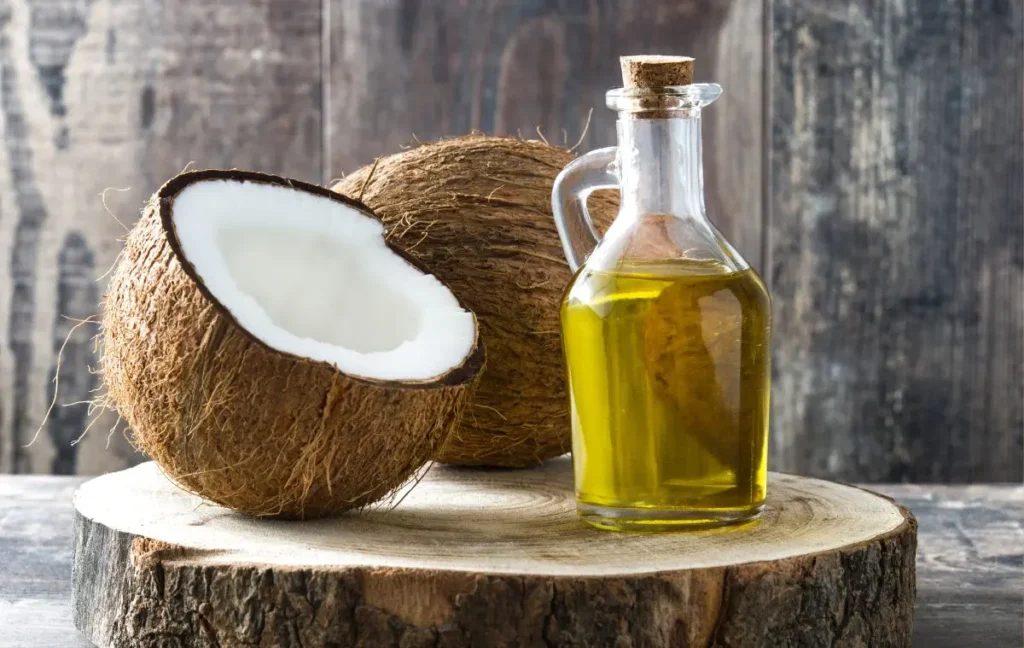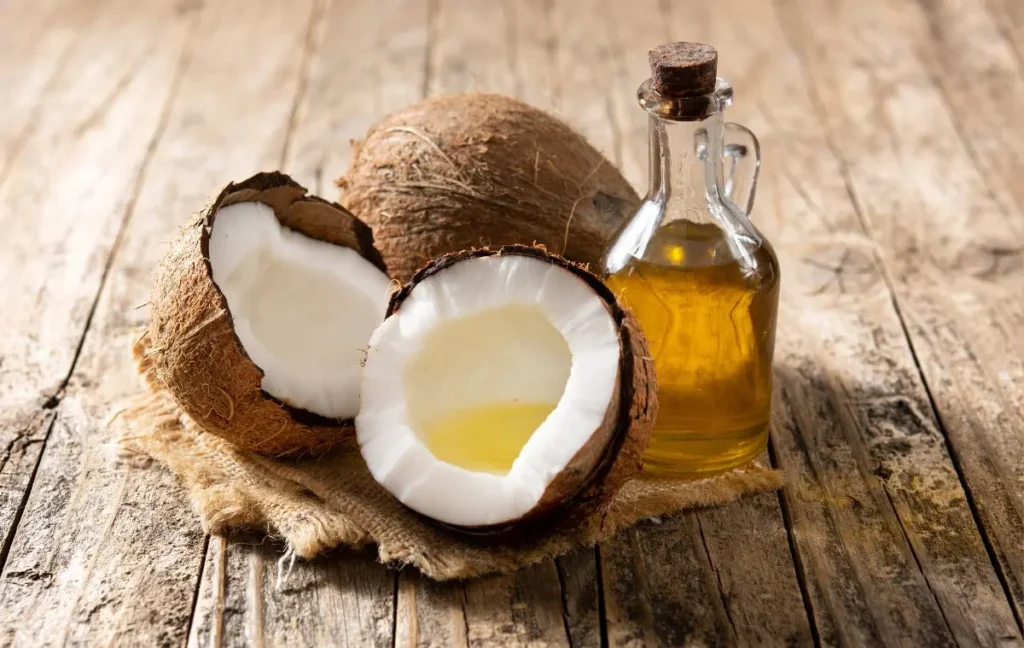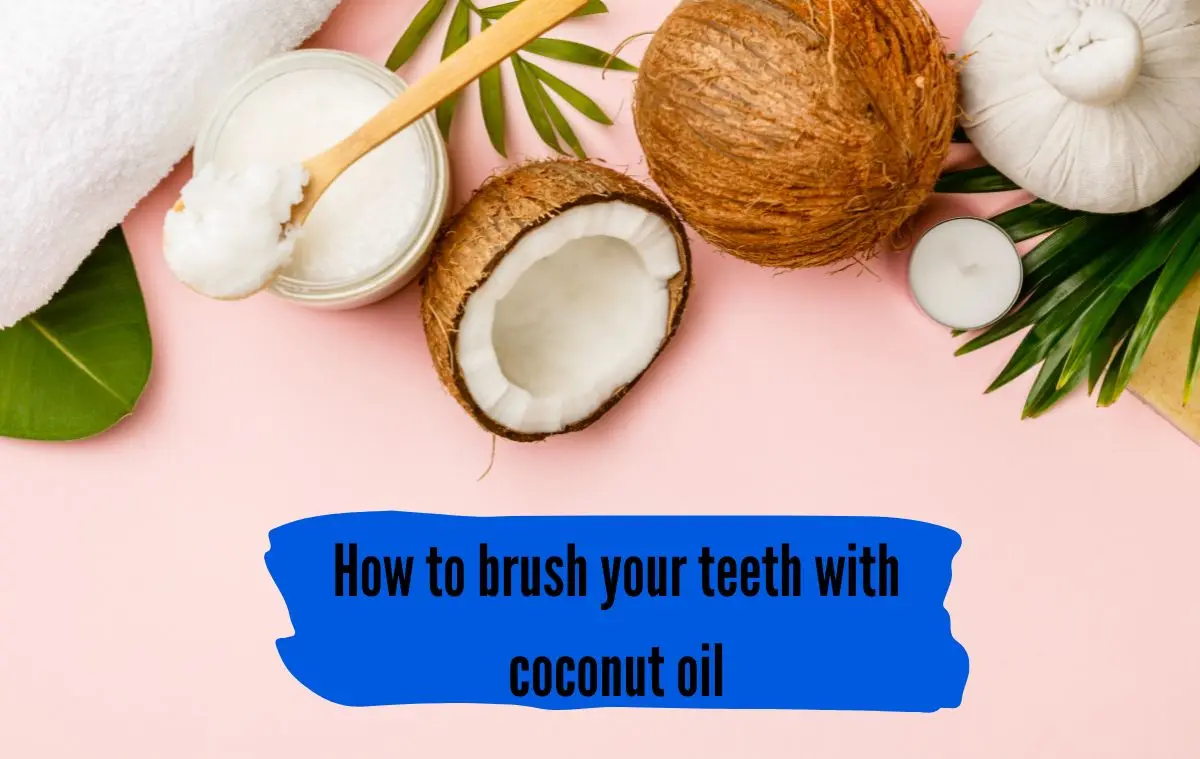Maintaining good oral hygiene is essential for a bright, healthy smile, and many people are turning to natural alternatives for dental care. Brushing your teeth with coconut oil has gained popularity as a holistic approach to oral health, with claims that it can whiten teeth, fight bacteria, and improve gum health.
But how effective is this natural remedy, and can it replace traditional toothpaste? In this article, we’ll explore the benefits, methods, and effectiveness of using coconut oil for dental care, including whether it can truly whiten your teeth.
can you brush your teeth with coconut oil
Coconut oil, known for its antimicrobial and anti-inflammatory properties, is a versatile ingredient that’s been used for centuries in natural health practices. When it comes to oral care, brushing your teeth with coconut oil is considered safe and effective for reducing bacteria in the mouth and promoting overall dental health.
Coconut oil contains lauric acid, which has antibacterial and antifungal properties that help fight plaque, bad breath, and gum inflammation.
This natural oil is particularly beneficial for those looking to avoid fluoride or harsh chemicals often found in commercial toothpaste. However, while coconut oil can complement your dental routine, it’s not a complete substitute for fluoride toothpaste, which provides additional protection against cavities. Using coconut oil as part of a broader oral care routine can help enhance your oral health naturally.
How to brush your teeth with coconut oil
Start with High-Quality Coconut Oil

Unrefined coconut oil retains its natural antibacterial and antifungal properties, making it ideal for oral care. Ensure the product is cold-pressed and free from additives or chemicals. High-quality coconut oil is essential for effective cleaning and reducing harmful bacteria. Using the purest form helps maximize the benefits of this natural remedy.
Use the Right Amount
Scoop out about a teaspoon of coconut oil for each brushing session. This amount is sufficient to coat your teeth and gums effectively without creating excess residue. If the coconut oil is solid, you can place it directly on your toothbrush or allow it to melt in your mouth first. The right quantity ensures proper coverage while keeping the process manageable and easy to repeat.
Brush as Usual
Use a soft-bristled toothbrush to apply the coconut oil to your teeth. Brush gently in circular motions, ensuring you clean all surfaces, including the front, back, and chewing areas. Spend at least two minutes brushing to remove plaque and bacteria effectively. Coconut oil is gentle on enamel, making it suitable for people with sensitive teeth.
Try Oil Pulling Before Brushing
Oil pulling is an additional technique where you swish coconut oil in your mouth for 10–15 minutes before brushing. This practice helps loosen plaque, reduce bacteria, and freshen your breath. After oil pulling, spit the oil into a trash can and rinse your mouth with warm water before proceeding to brush. Incorporating oil pulling can enhance the effectiveness of your coconut oil routine.
Combine with Baking Soda
For an extra cleaning boost, mix a small amount of baking soda with coconut oil to create a natural whitening paste. Baking soda’s mild abrasiveness helps remove surface stains, while coconut oil soothes and protects your gums. Be gentle to avoid over-scrubbing, as excessive use of baking soda can be abrasive to enamel.
Spit and Rinse Thoroughly
After brushing, spit the coconut oil into a trash can to prevent plumbing issues. Rinse your mouth with warm water to remove any remaining oil and residue. You can follow up with a fluoride toothpaste or mouthwash for additional protection. Proper rinsing ensures your mouth feels fresh and clean while keeping your dental routine hygienic and effective.
is brushing your teeth with coconut oil good
Yes, brushing your teeth with coconut oil can be good for your oral health, thanks to its natural properties. Coconut oil’s ability to fight harmful bacteria makes it an excellent addition to any dental routine. Lauric acid, a key component of coconut oil, targets the bacteria responsible for plaque buildup and gum inflammation.
Additionally, coconut oil is gentle on enamel and doesn’t contain abrasive ingredients that could harm sensitive teeth. However, it’s important to note that while coconut oil has numerous benefits, it lacks fluoride, which is essential for cavity prevention. Therefore, combining coconut oil with fluoride-based toothpaste or using it as a complementary step can provide the best results.
Does Coconut Oil Whiten Teeth?

Many people claim that using coconut oil can whiten teeth naturally, but the evidence is mostly anecdotal. However, its antibacterial properties may contribute to a brighter smile by reducing plaque and removing surface stains caused by food and drink.
Regular use of coconut oil can help maintain cleaner teeth, which may appear whiter over time. Techniques like oil pulling, where you swish coconut oil in your mouth for 10–15 minutes daily, are thought to enhance this effect. While coconut oil won’t provide the dramatic results of professional whitening treatments, it can be a safe and natural way to maintain a bright smile.
HOW TO WHITEN TEETH WITH COCONUT OIL
Coconut oil can help whiten teeth naturally by reducing plaque, removing surface stains, and improving overall oral hygiene. One popular method is oil pulling, where you swish coconut oil in your mouth for 10–15 minutes daily. This process loosens debris and bacteria from teeth, contributing to a cleaner and brighter smile over time.
For best results, use organic, unrefined coconut oil and swish it thoroughly around your teeth and gums. After oil pulling, spit the oil into a trash can to avoid clogging drains and rinse your mouth with warm water to complete the process.
Another effective way to whiten teeth with coconut oil is by combining it with baking soda. Mix a small amount of baking soda with coconut oil to create a natural whitening paste. Baking soda’s mild abrasiveness works to scrub away surface stains, while coconut oil’s antibacterial properties support gum health.
Brush your teeth with this mixture two to three times a week for noticeable results. While coconut oil won’t provide the instant whitening effects of commercial products, consistent use can lead to gradual improvements in your smile’s brightness while promoting healthier teeth and gums.
Conclusion
Brushing your teeth with coconut oil is a natural and safe way to enhance your oral hygiene. With its antibacterial properties, it helps fight plaque, reduce gum inflammation, and freshen breath. While coconut oil may not replace traditional toothpaste, it’s a valuable addition to a comprehensive dental care routine.
Whether you use it for oil pulling, as a gentle brushing agent, or combined with baking soda for natural whitening, coconut oil offers a chemical-free way to care for your smile. By incorporating it into your daily habits, you can enjoy healthier teeth and gums naturally.
FAQs
Can I use coconut oil instead of toothpaste?
Yes, you can use coconut oil as an alternative to toothpaste, especially if you prefer a natural option. Coconut oil has antibacterial properties that help fight plaque and freshen breath. However, it lacks fluoride, which is essential for cavity prevention. For comprehensive oral care, you can use coconut oil alongside fluoride toothpaste or as a complementary step in your routine.
How should I brush my teeth with coconut oil?
You can brush your teeth with coconut oil daily or a few times a week, depending on your preference. Regular use can help reduce bacteria, soothe gums, and maintain oral hygiene. For those using it for whitening purposes, consistent use over several weeks is needed to see noticeable results. Combining coconut oil with your regular dental routine ensures optimal care.
Does brushing with coconut oil whiten teeth?
Coconut oil may help whiten teeth by reducing surface stains and removing plaque, but it doesn’t contain bleaching agents like peroxide. Techniques like oil pulling or combining coconut oil with baking soda can enhance its whitening effects. While results are gradual, coconut oil is a safe, natural way to support a brighter smile.
Is coconut oil safe for people with sensitive teeth?
Yes, coconut oil is safe and beneficial for people with sensitive teeth. It is gentle on enamel and free from harsh abrasives or chemicals found in some toothpaste. Its anti-inflammatory properties can also soothe irritated gums, making it a great option for those with sensitivities. Always use a soft-bristled toothbrush for added comfort.
Can coconut oil help with bad breath?
Yes, coconut oil can help reduce bad breath by fighting odor-causing bacteria in the mouth. Lauric acid, a key component of coconut oil, has antimicrobial properties that target bacteria responsible for unpleasant odors. Regular use, through brushing or oil pulling, can leave your mouth feeling fresh and clean naturally.

